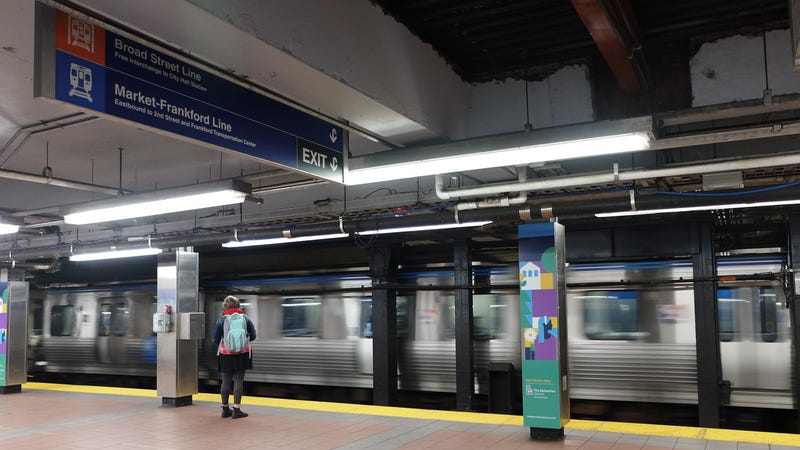
PHILADELPHIA (KYW Newsradio) — FMC Corporation is the latest large-scale Philadelphia company to join SEPTA's expanded Key Advantage program, which allows employers to buy all-access transit passes at a deep discount and pass them on to their workers as free passes.
“[FMC represents] an office sector business who's looking to incentivize their employees to come back to the office and do so in a sustainable way,” said Erik Johanson, SEPTA’s senior director of budgets and transformation.
FMC employees can begin to use their passes Nov. 1.
A six-month pilot with The University of Pennsylvania, Drexel University and Wawa proved so successful that SEPTA has made the Key Advantage initiative permanent, Johanson told KYW Newsradio. “As we’ve been looking at the data, we’ve found pretty significant successes. So much so that we felt comfortable going ahead and announcing [Wednesday] the next phase of the expansion of the program.”
Johanson said SEPTA is negotiating with other large employers, and next year will open the program to small businesses with fewer than 50 employees. “This is a way for an employer to offer a new benefit to their employees that’s a differentiator for the employer in a tough hiring market,” Johanson said.
Under Key Advantage, employers purchase monthly “anywhere passes” from SEPTA for $27 each. That’s a deep discount over the regular price of $200. During the pilot, half of the 15,800 eligible employees regularly took advantage of the free rides, Johanson said.
Those who already had SEPTA Key cards were riding 18% more, he said.
“The idea is that, over time, when you offer something as a benefit to employees, their incentive will be to use it – which is going to drive the sort of ridership growth that we’re seeing with the pilot and hope to continue to see,” Johanson said. “Transportation is a deeply habitual thing. So we’re trying to get people back on transit in every single way we can.”
SEPTA ridership is at slightly over half of pre-pandemic levels, the transit agency said. Key Advantage is revenue-neutral for SEPTA, Johanson explained, saying the aim is to get post-COVID riders in the habit of taking transit again. Before the pandemic, SEPTA generated about 40% of its operating revenues at the farebox, Johanson said. Currently, fares account for 20% of revenues, with federal COVID relief funds making up the difference.
Johanson said SEPTA is talking with area universities about a version of Key Advantage that would allow colleges to offer free SEPTA passes to students next year.
“There's a lot of data to suggest that people who actively engage with their city are more likely to stay,” Johanson said. “Those are our future riders. Those are the people making decisions about not only where to live when they graduate but also how to get around where they live. All of a sudden, we've built our next generation of transit riders,” he said.
Employers and schools can apply for the Key Advantage program online.

